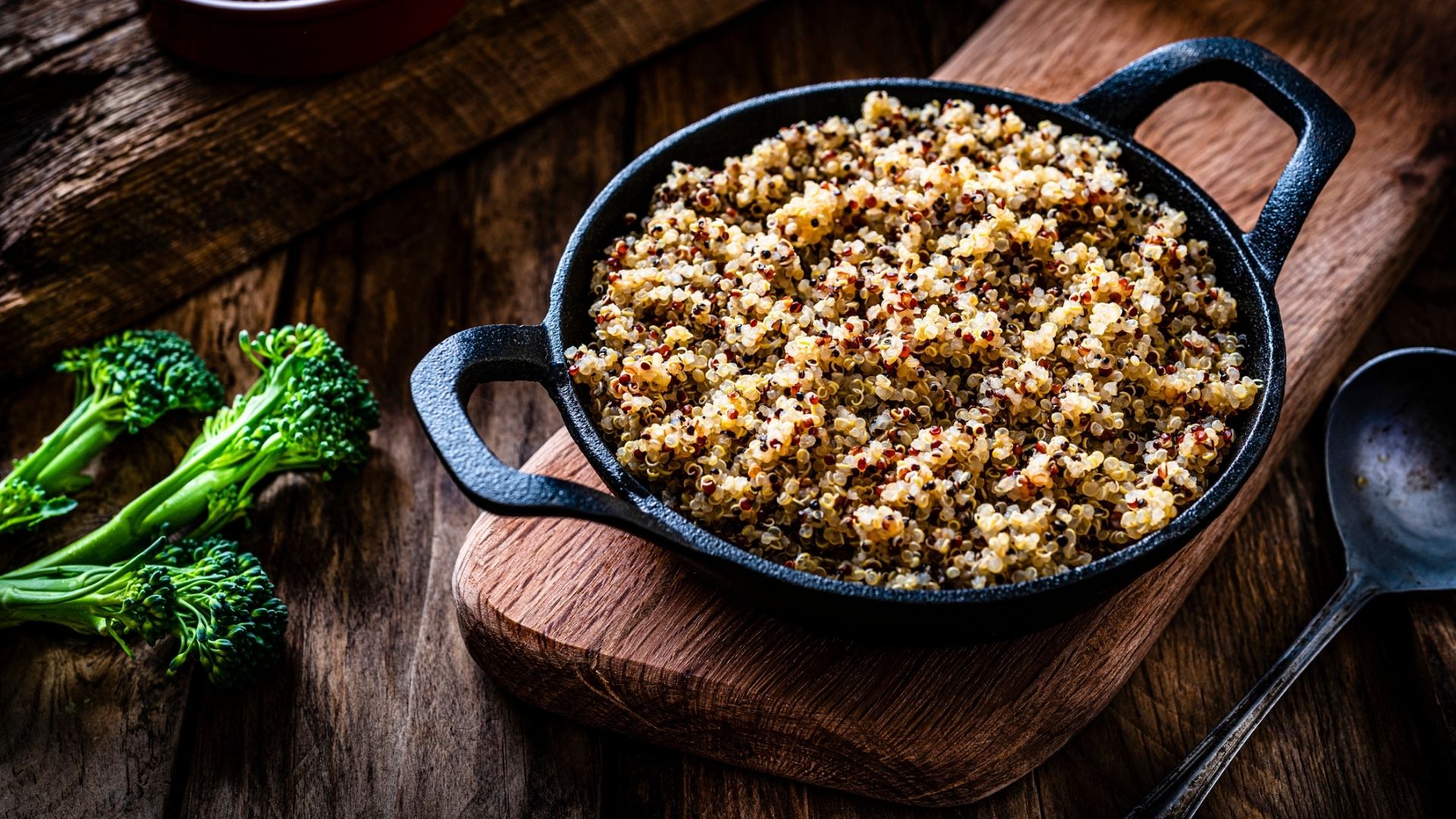The 16:8 diet: What is it and could it work for you?
The 16:8 diet is a popular form of intermittent fasting. Here, a dietician explains how it works for weight loss


The 16:8 diet is another form of intermittent fasting that's soared in popularity over the years, with everyone from celebrities to CEOs raving about their success with the eating plan.
When it comes to weight loss, one of the hardest parts for many people is giving up the foods and drinks they enjoy. Intermittent fasting of any variety takes this challenge out of the equation as it's all about when and how much you eat, rather than what you eat.
But what makes the 16:8 different from other types of intermittent fasting like the 5:2 diet? Here, a dietician explains everything you need to know about the diet, the top intermittent fasting mistakes to avoid, plus how it works for weight loss if that's your goal.
What is the 16:8 diet?
The 16:8, also known as the 8-hour diet, is a form of intermittent fasting that's based on timed eating, rather than calorie-controlled eating. "It involves limiting consumption of foods and calorie-containing beverages to a set window of eight hours per day and abstaining from food for the remaining 16 hours," explains dietician Dr Carrie Ruxton from the Health & Food Supplements Information Service.
"This cycle can be repeated as often as you like, from just once or twice per week to every day, depending on personal preference.”
How does the 16:8 diet work?
There's one rule when doing the 16:8 diet: only eat during your chosen eight hours. This can be any allotted time through the day but a popular time is from midday to 8pm at night, so the largest proportion of fasting time is spent asleep.
“Start by picking a time frame for fasting, say 8pm until midday the following day or 5pm until 9am until the following day," says Dr Ruxton. "So, you’d eat during the hours of 12 noon until 8pm or from 9am until 5pm." This second option leaves a good amount of time for a healthy breakfast in the morning, which is a better option if you prefer to eat earlier in the day.
Sign up to our free daily email for the latest royal and entertainment news, interesting opinion, expert advice on styling and beauty trends, and no-nonsense guides to the health and wellness questions you want answered.
As there are no set rules on what you can and can't eat on the 16:8 diet, "you could eat anything you like," Dr Ruxton says, "Although any benefits that might be gained from the diet may be counteracted if you choose a high proportion of less healthy foods." That's why it's important to stick to the best foods for weight loss during your eating time, including nutritious whole foods, and drink calorie-free drinks like water and unsweetened teas.

Does the 16:8 diet work for weight loss?
Yes if you stick to healthy meals during your eating time, much like all other forms of intermittent fasting, the 16:8 diet can help you get into a calorie deficit to lose weight. A calorie deficit, which can also be thought of as 'calories in versus calories out', is achieved through fasting as you're naturally eating fewer calories throughout the day.
"Restricting food intake to eight hours a day helps to cut calories," says Dr Ruxton. "It may also help weight loss if the diet is healthy and the person does not make up for fasting by eating large amounts of foods during the eating period of eight hours."
There's also research to suggest that as well as simply eating less, fasting specifically can help to speed up weight loss. A review from the University of Tasmania found that in 11 studies out of 13, people lost a substantial amount of weight with intermittent fasting in particular.
This could be down to many reasons, but research from the University of Vienna suggests that it could be because intermittent fasting increases levels of norepinephrine in the body, a hormone that boosts the metabolism. Boosting the metabolism, otherwise known as putting the body through a 'metabolic shift' would increase calorie burning throughout the day, contributing to the 'calories out' part of the weight-loss equation.
There is nothing to suggest, however, that intermittent fasting is a more successful weight loss technique than traditional dieting methods or other plans, the Cambridge diet.
Why could the 16:8 diet work for you?
The 16:8 diet won't be for everyone, especially those that like to eat a few smaller meals through the day, but intermittent fasting works for many people as it's one of the easier diets to follow.
Dr Ruxton agrees, "While other diets often set strict rules and regulations on what can be eaten, 16:8 intermittent fasting is easy to follow and requires minimal effort."
She also adds, "It is generally considered less restrictive and more flexible than some other diet plans and is easier for some people to fit into their lifestyle, which can contribute to weight loss.”
Ultimately, it's all about choosing which diet is best for you as you're more likely to stick to it if you enjoy the process somewhat. Those who don't find 16:8 eating enjoyable may want to opt for other programs like following the 80/20 diet rule, which encourages a more balanced diet.

Is the 16:8 diet bad?
"Only eating for eight hours a day can cause some people to eat more than they normally would during eating periods, as their body tries to make up for the hours spent fasting," explains Dr Ruxton, pointing to research from the University of California. "This can cause the opposite effect of what was intended, like weight gain, digestive problems, and the development of unhealthy eating habits."
She also explains that the 16:8 diet can cause short-term negative side effects when people first take it on, as it'll be a style of eating that most people aren't used to. "The 16:8 diet may also cause short-term negative side effects at the start such as hunger, weakness and fatigue – though these often subside once a routine is established."
And that's not the only thing to look out for. “Restricting food intake could also reduce intake of vitamins and minerals," says Dr Ruxton. "In fact, any change of food diet regime can prejudice vitamin and mineral intake.”
How much weight could you lose on the 16:8 diet?
"This depends on your calorie intake during the eight hours you eat," says Dr Ruxton. "Research on this diet is limited, but the leading study by the University of California has shown similar weight loss on an intermittent fasting diet and a low-calorie diet. Although intermittent fasting may be more effective for retention of lean tissue like muscle for example."
Is the 16:8 diet worth a try?
If you want to lose weight, there's nothing to suggest that the 16:8 is unsuitable or unsafe for most people. "It's an easy way to improve your health when managed with a healthy nutritious diet and a healthy lifestyle," says Dr Ruxton. "However, it shouldn’t be viewed as a substitute for a balanced, healthy diet rich in whole foods."
Though 16:8 intermittent fasting is generally considered safe for most healthy adults, it’s important to talk to your doctor before giving it a try. This is especially the case if you have any underlying health conditions, such as diabetes, low blood pressure, a history of disordered eating, or if you take any medication. Plus, intermittent fasting is also not recommended for women who are trying to conceive or those who are pregnant or breastfeeding.”

Grace Walsh is woman&home's Health Channel Editor, working across the areas of fitness, nutrition, sleep, mental health, relationships, and sex. She is also a qualified fitness instructor. In 2025, she will be taking on her third marathon in Brighton, completing her first ultra marathon, and qualifying as a certified personal trainer and nutrition coach.
A digital journalist with over seven years experience as a writer and editor for UK publications, Grace has covered (almost) everything in the world of health and wellbeing with bylines in Cosmopolitan, Red, The i Paper, GoodtoKnow, and more.